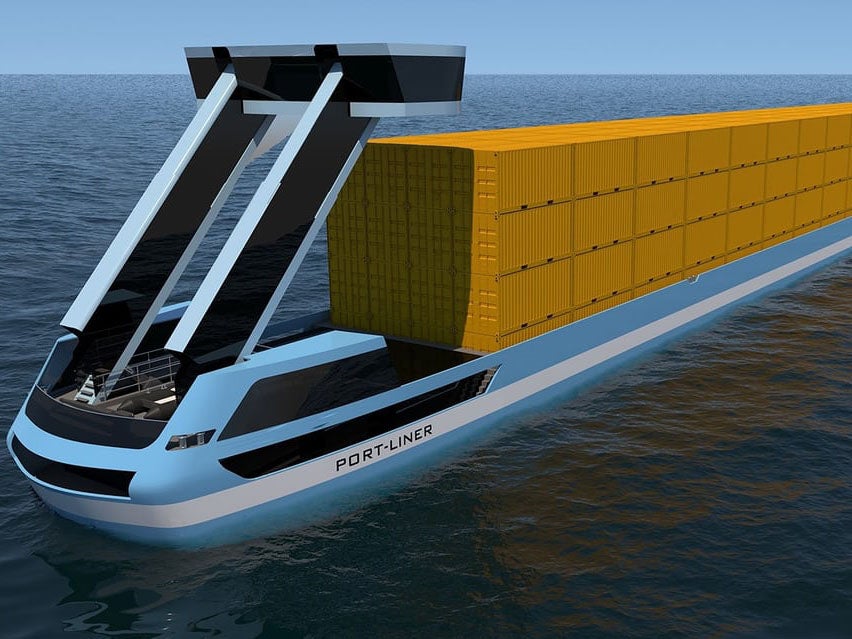'Tesla of the canals': Netherlands and Belgium to launch world’s first zero-emissions self-piloting container barges
Each fully-electric boat will transport 24 containers weighing up to 425 tonnes

Your support helps us to tell the story
From reproductive rights to climate change to Big Tech, The Independent is on the ground when the story is developing. Whether it's investigating the financials of Elon Musk's pro-Trump PAC or producing our latest documentary, 'The A Word', which shines a light on the American women fighting for reproductive rights, we know how important it is to parse out the facts from the messaging.
At such a critical moment in US history, we need reporters on the ground. Your donation allows us to keep sending journalists to speak to both sides of the story.
The Independent is trusted by Americans across the entire political spectrum. And unlike many other quality news outlets, we choose not to lock Americans out of our reporting and analysis with paywalls. We believe quality journalism should be available to everyone, paid for by those who can afford it.
Your support makes all the difference.The Netherlands and Belgium are launching the world’s first zero-emissions, autonomous container barges dubbed the “Tesla of the canals”.
Each fully-electric boat will transport 24 containers weighing up to 425 tonnes from ports in Amsterdam, Antwerp and Rotterdam.
The five barges, which are launched this summer, are set to vastly reduce the use of diesel-powered lorries transporting freight, with 23,000 expected to be taken off the roads as a result.
The vessels, made by Dutch manufacturer Port Liner, will be powered by 20ft batteries that provide 15 hours of continuous power.
Ton van Meegen, Port Liner chief executive, told logistics website The Loadstar: “The containers are charged onshore by carbon-free energy provider Eneco, which sources solar power, windmills and renewables.”
The barges measure 52 metres in length and 6.7m wide, with an extra 8 per cent of space compared to traditional barges due to its lack of an engine room.
Although they will be initially manned, the barges are expected to pilot themselves once new infrastructure is built to accommodate them.
Port Liner is planning to introduce six 110m-long barges at a later date.
The bigger boats will be able to carry 280 containers and run for 30 hours without needing to recharge. It is estimated they alone could lead to a reduction of 18,000 tonnes of CO2 per year.
The European Union has handed more than £6m in subsidies towards the project, with additional contributions from the ports who will receive the barges.
Mr van Meegen said it was only the low bridges in Belgium and Holland that prevented the barges from carrying more containers.
Join our commenting forum
Join thought-provoking conversations, follow other Independent readers and see their replies
Comments